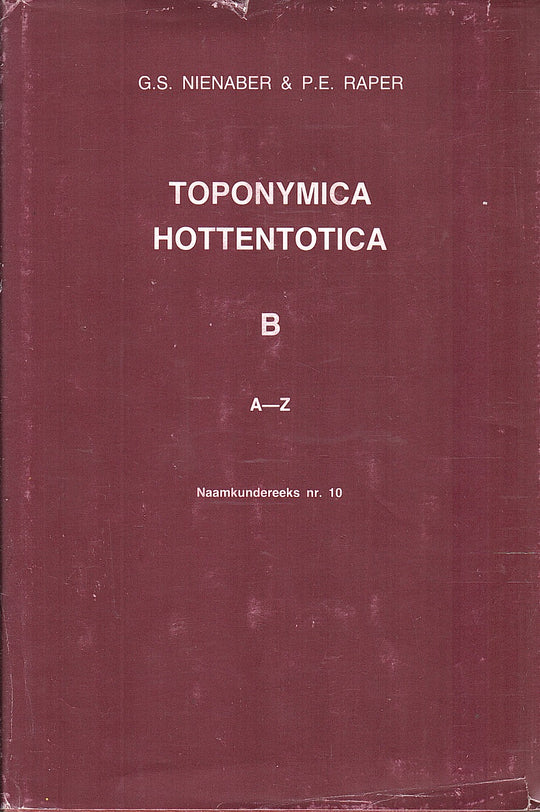Uigenab
Located northeast of Warmbaths and as an alternative name in brackets entered Under 'Klipdam' No. 287, of which it apparently became the old name. The linguistic relationship also does not leave any doubt. The ǀ Ui- is Nama for stone, the -ge - Maybe here, like at Uichenas, for Nama -Xa- in the sense of 'many', and the -no- like Namaǃ After 'in'. Uyenab is in case of declaring 'many (-exa -) stones (ǀ onion) in (ǃ to) ... ', unlike' stones (ǀ ui-gu) in (ǃ Na-) (understand: the dam) '. Obviously, we have a problem here with -gena-B, and in the effort to reconcile this place name's conclusion part with what Segslides at Uichenas 2219 and Uyenab 2619 said. We prefer another statement for this part, d.w.s. for the -genab in this case. We often come this writer and spelling tea that segslides (as turned out to o.a. uichenas and uigenab) redirected to -exa plusǃ Na- orǃ Na-. This -Gena - / - Gana is in the way the judgment of the -GNA in eg. Naroogna, and present Nama + Ga- = 'Vley (Ohne Wasser)' (Rust I960 DNW 70), or Nama + Ga- = 'Das Grabwasserloch ...' (Kr.- R. 1969 NW 97). The palatulations + are alveoler, just like the -n-, ╪ga - is written in place names differently, eg. o.a. If GNA, NGA, where the -n- the palatal absorbs. And it's the easier at ╪ga-. Uyena can therefore be like Nama ǀ onion, literally 'stone (dry) flattery', or 'Klipdam'. 'Klipdam' is m.a.w. The literal process of the old Khoekhoense name that suffered slightly in the verdict (and custom spell).




